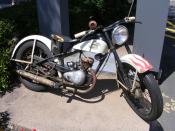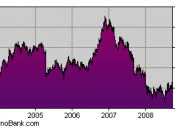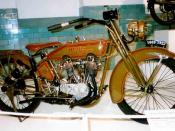What picture immediately springs into mind when Harley-Davidson is mentioned? The average person in an association game would likely say, "motorcycle". Indeed, Harley and motorcycle seem almost synonymous. Harley-Davidson is a household name to motorcycle enthusiasts, and the company is inarguably successful. In fact, they just celebrated their 100th anniversary in 2003. However, success was not always easy for this well-known company. It is no secret that they went through a major crisis in the mid-1980's. Ozley and Teerlink (2000) explain that during this time, "The ferocious competition from Japanese imports coupled with quality problems, lagging product design and development, and high manufacturing costs, created a major crisis at the motorcycle maker..."
The crisis situation above is far from obsolete in today's society. In fact, it seems to be a most prevalent topic at present, especially during the election season as politicians discuss the countless jobs which are rapidly being shipped overseas where companies can acquire cheaper labor.
Fortunately, a case like Harley-Davidson can provide hope, and studying Harley's experience may give a struggling company insight on how to overcome the challenges they face. Opportunely, not only has this case been well documented, the now retired CEO, Rich Teerlink, and Lee Ozley, "the organizational consultant and coach", who were two major players in Harley's transformation, have written a book detailing the ultimate business journey firsthand, called More Than A Motorcycle: The Leadership Journey at Harley-Davidson (Ozley & Teerlink, 2000). The first and most obvious question is: How did Harley-Davidson turn themselves around 180 degrees and not only survive the crisis but thrive thereafter?
The simple answer to this question is Harley's people. At this point in time, Harley's corporate organizational structure was similar to many corporate configurations with a bureaucratic, top-down type of command. Executives issued demands that were promptly...



4 points of consideration
1] well written
2]not so well researched/cited (use MLA)
3]intresting
4]relevant
Question: Did you really make a 100% on this or are you polishing a little on that? I find it a little hard to believe that any profesor would be quite so lenient with the poor works cited.
0 out of 3 people found this comment useful.